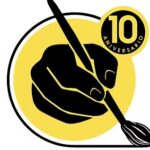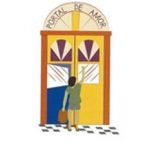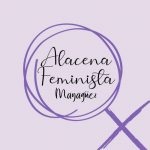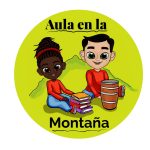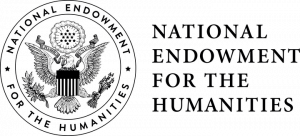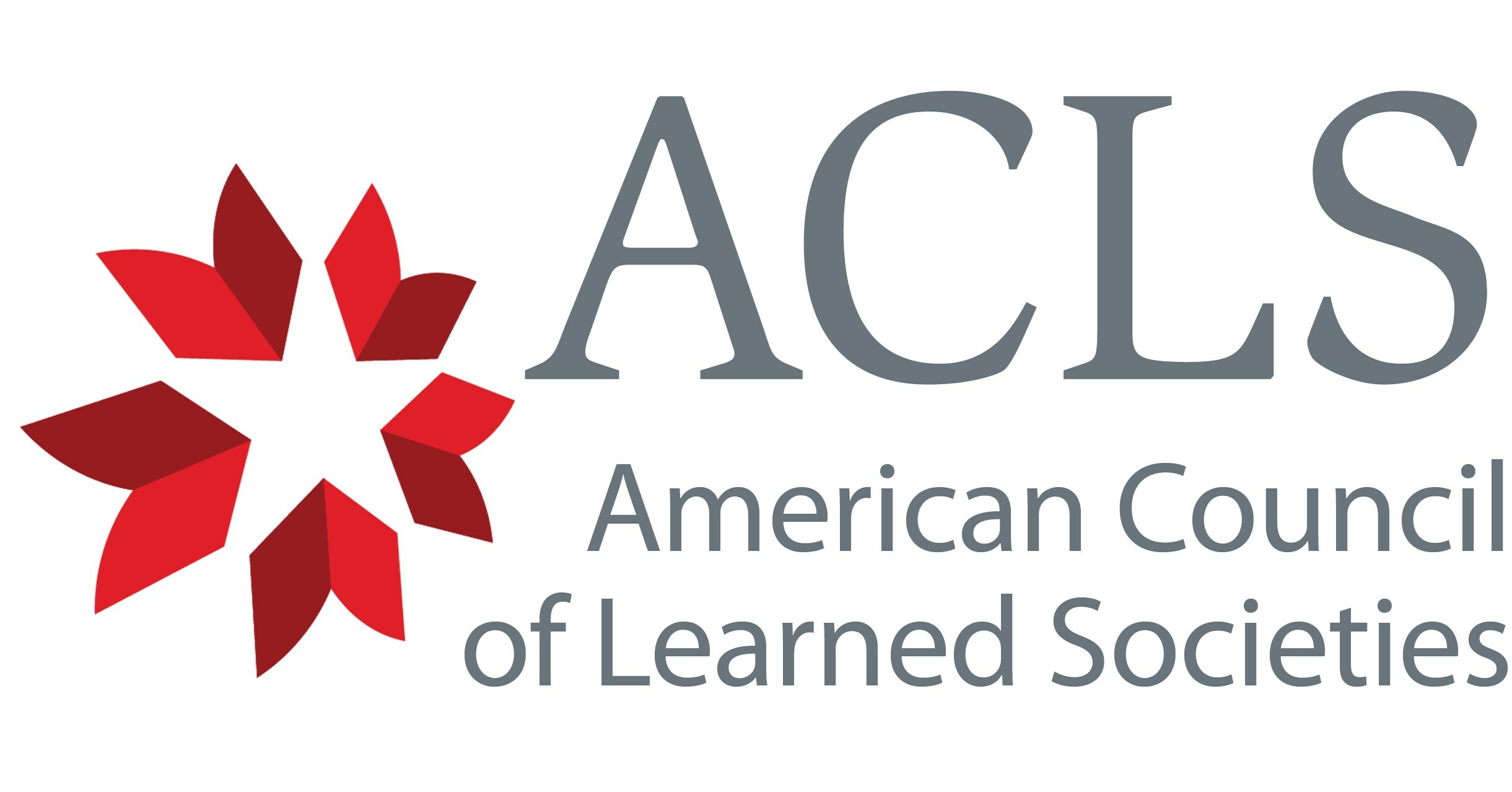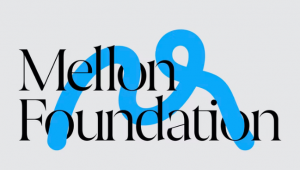The OHL has developed partnerships with community and mutual aid organizations, citizen scientist groups, and cultural institutions. Below are some examples of past and present partnerships.
La OHL ha desarrollado alianzas con organizaciones comunitarias y de ayuda mutua, grupos de científicos ciudadanos e instituciones culturales. A continuación, se presentan algunos ejemplos de alianzas pasadas y presentes.
Community Organizations / Organizaciones Comunitarias
CAMJI-Bartolo
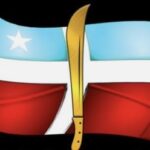 The Centro de Apoyo Mutuo Jíbaro-Bartolo (CAMJI-Bartolo) is a solidarity initiative that impacts the following communities in Lares: Calvache, Mirasol, Vilella, Bartolo, Río Prieto, and Cerro Las Avispas. After Hurricane María, the community of Bartolo began rehabilitated an abandoned school to provide shelter for homeless families, serve as a storage and collection center for aid, and offer a community kitchen. The OHL collaborated with Elisa Sánchez, representative of CAMJI, through a grant from the American Council of Learned Societies. The OHL provided training in oral history and recording equipment to support the collection of oral history interviews and photographs with women coffee growers. These oral histories and a series of photos taken during and prior to this collaboration served as the basis for photographer Andrés Octavio, under the direction of CAMJI Bartolo, to design a calendar featuring 12 women coffee growers, each accompanied by an excerpt from their interviews.
The Centro de Apoyo Mutuo Jíbaro-Bartolo (CAMJI-Bartolo) is a solidarity initiative that impacts the following communities in Lares: Calvache, Mirasol, Vilella, Bartolo, Río Prieto, and Cerro Las Avispas. After Hurricane María, the community of Bartolo began rehabilitated an abandoned school to provide shelter for homeless families, serve as a storage and collection center for aid, and offer a community kitchen. The OHL collaborated with Elisa Sánchez, representative of CAMJI, through a grant from the American Council of Learned Societies. The OHL provided training in oral history and recording equipment to support the collection of oral history interviews and photographs with women coffee growers. These oral histories and a series of photos taken during and prior to this collaboration served as the basis for photographer Andrés Octavio, under the direction of CAMJI Bartolo, to design a calendar featuring 12 women coffee growers, each accompanied by an excerpt from their interviews.
CAMJI-Lares
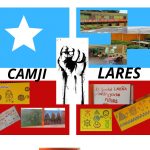 The Centro de Apoyo Mutuo Jíbaro-Lares (CAMJI-Lares) has reclaimed a school that was formerly shut down by the Department of Education. From this space, a group of community activists practice and teach popular agroecology through community service. They promote traditional jibaro practices and teach surrounding communities how to claim these ancestral saberes. The OHL first partnered with Pluma Bárbara Moreno, CAMJI’s coordinator, through a grant from the American Council of Learned Societies. The OHL offered oral history training and recording equipment to support the collection of oral history interviews with community elders. These oral histories served as the basis for the co-creation of a printed and digital zine called Nuestras Voces Jíbaras entre lo Agrario y lo Indígena that reflects agrarian and indigenous knowledge crucial to disaster preparedness and crisis survival.
The Centro de Apoyo Mutuo Jíbaro-Lares (CAMJI-Lares) has reclaimed a school that was formerly shut down by the Department of Education. From this space, a group of community activists practice and teach popular agroecology through community service. They promote traditional jibaro practices and teach surrounding communities how to claim these ancestral saberes. The OHL first partnered with Pluma Bárbara Moreno, CAMJI’s coordinator, through a grant from the American Council of Learned Societies. The OHL offered oral history training and recording equipment to support the collection of oral history interviews with community elders. These oral histories served as the basis for the co-creation of a printed and digital zine called Nuestras Voces Jíbaras entre lo Agrario y lo Indígena that reflects agrarian and indigenous knowledge crucial to disaster preparedness and crisis survival.
Colectivo PerlArte
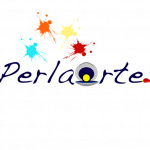 Colectivo PerlArte is a community-owned gallery that is run by Lorel Denisse Cubano Santiago who helped to found it after Hurricane María. Located in La Perla, San Juan, it is a space for creation, memory, and resistance against displacement and inequality. Lorel was first interviewed in 2018 for the mass-listening project Mi María: Puerto Rico after the Hurricane, and her narrative appears in the Voice of Witness book, Mi María: Surviving the Storm, Voices from Puerto Rico. Later, through a grant from the American Council of Learned Societies, Colectivo PerlArte and the OHL partnered to conduct interviews with community members, create a mural that captures key stories and sites in the La Perla neighborhood, and produce the short documentary La Perla en que Vivimos….
Colectivo PerlArte is a community-owned gallery that is run by Lorel Denisse Cubano Santiago who helped to found it after Hurricane María. Located in La Perla, San Juan, it is a space for creation, memory, and resistance against displacement and inequality. Lorel was first interviewed in 2018 for the mass-listening project Mi María: Puerto Rico after the Hurricane, and her narrative appears in the Voice of Witness book, Mi María: Surviving the Storm, Voices from Puerto Rico. Later, through a grant from the American Council of Learned Societies, Colectivo PerlArte and the OHL partnered to conduct interviews with community members, create a mural that captures key stories and sites in the La Perla neighborhood, and produce the short documentary La Perla en que Vivimos….
Come Colegial

Come Colegial is a student-led initiative at the University of Puerto Rico at Mayagüez that fights food insecurity by providing free non-perishable food, hot meals, and fresh produce to students in need. Founded in 2014, its mission is to ensure that no student has to choose between hunger and education, supporting them until they reach food stability. The OHL first partnered with Come Colegial through a multi-campus project impacting UPR-Mayagüez and Río Piedras and Michigan State University titled Archive of Emergency Responses in Puerto Rico (AREPR), which focused on food insecurity in the years since Hurricane María made landfall in the Puerto Rican archipelago. The OHL conducted oral history interviews with Lucy Serrano Gastón, faculty founder of Come Colegial. The narratives became part of UPRM’s digital repository and excerpts of these interviews were used as part of the short documentary, Our Piece of Land. The AREPR oral history collection laid the foundation for the creation of an Omeka S subsite, which showcases 10 years of Come Colegial’s community outreach through the archived materials featured in a TimelineJS.
Fundación de Culebra
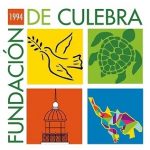 Fundación de Culebra is a non-profit founded in 1994 that focuses on conserving, protecting, and promoting the arts, environment, and history of the municipality of Culebra. Their mission is rooted in education and social values to foster community self-worth and self-management. The OHL first met with Luz Rivera Cantwell from Fundación de Culebra when she was interviewed for the Mi María: Puerto Rico after the Hurricane project. Further collaborations included the Speaking into Silences: Building Community Archives across the Puerto Rican Archipelago project funded by the American Council of Learned Societies, where Luz, working with Culebra’s music program, Musicá Pa’ Culebra, helped preserve life stories of local musicians. These oral histories inspired the creation of a playlist, which showcases the long tradition of music in Culebra and brings awareness to the challenges Culebra faces, such as the lack of a living wage, a shortage of affordable housing, and gentrification.
Fundación de Culebra is a non-profit founded in 1994 that focuses on conserving, protecting, and promoting the arts, environment, and history of the municipality of Culebra. Their mission is rooted in education and social values to foster community self-worth and self-management. The OHL first met with Luz Rivera Cantwell from Fundación de Culebra when she was interviewed for the Mi María: Puerto Rico after the Hurricane project. Further collaborations included the Speaking into Silences: Building Community Archives across the Puerto Rican Archipelago project funded by the American Council of Learned Societies, where Luz, working with Culebra’s music program, Musicá Pa’ Culebra, helped preserve life stories of local musicians. These oral histories inspired the creation of a playlist, which showcases the long tradition of music in Culebra and brings awareness to the challenges Culebra faces, such as the lack of a living wage, a shortage of affordable housing, and gentrification.
Próximamente estará disponible en español. Visite esta página nuevamente.
Other Community Partnerships /Otras Asociaciones Comunitarias
Collaborators / Colaboradores
Archivo de Respuestas Emergencias de Puerto Rico
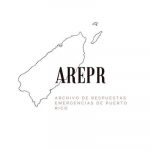 The OHL collaborates with digital humanities teams at UPR Río Piedras and Michigan State University in the Archivo de Respuestas Emergencias de Puerto Rico. This Omeka S digital archive is committed to preserving and amplifying curated collections of stories and documents from mutual aid organizations across the Puerto Rican archipelago. Through our work on this data curation project, we disseminate widely information regarding the creative strategies for survival that communities have developed in the face of stratified disasters such as hurricanes, earthquakes, and the global pandemic of COVID-19. This project is generously supported by a Collaborative Grant from the National Endowment for the Humanities and the Presidential Stream of the Andrew W. Mellon Foundation.
The OHL collaborates with digital humanities teams at UPR Río Piedras and Michigan State University in the Archivo de Respuestas Emergencias de Puerto Rico. This Omeka S digital archive is committed to preserving and amplifying curated collections of stories and documents from mutual aid organizations across the Puerto Rican archipelago. Through our work on this data curation project, we disseminate widely information regarding the creative strategies for survival that communities have developed in the face of stratified disasters such as hurricanes, earthquakes, and the global pandemic of COVID-19. This project is generously supported by a Collaborative Grant from the National Endowment for the Humanities and the Presidential Stream of the Andrew W. Mellon Foundation.
Humanities Action Lab

The OHL is a partner in the translocal climate justice network of partner universities and community organizations led by the Humanities Action Lab (HAL) at Rutgers University-Newark. OHL Director, Ricia Anne Chansky, is the Senior Climate Justice Fellow for HAL. In September 2024, the General Library will host the HAL exhibition, Climates of Inequality: Stories of Environmental Justice. Click here to see the UPRM contribution to the exhibition—and be sure to scroll down to see both our work on the “Sheltered in Place” project and our food insecurity zine—and here to watch the HAL documentary that features the UPRM team. The climate justice work at HAL is generously supported by a Humanities Discussions Grant from the National Endowment for the Humanities and a Grant from the Higher Learning Stream of the Andrew W. Mellon Foundation.
Colaboradores
 El OHL colabora con equipos de humanidades digitales en la UPR Río Piedras y la Universidad Estatal de Michigan en el Archivo de Respuestas Emergencias de Puerto Rico. Este archivo digital Omeka S está comprometido con la preservación y amplificación de colecciones seleccionadas de historias y documentos de organizaciones de ayuda mutua en todo el archipiélago puertorriqueño. A través de nuestro trabajo en este proyecto de curación de datos, difundimos ampliamente información sobre las estrategias creativas para la supervivencia que las comunidades han desarrollado ante desastres estratificados como huracanes, terremotos y la pandemia global de COVID-19. Este proyecto cuenta con el generoso apoyo de una Subvención Colaborativa de la National Endowment for the Humanities y el Fondo Presidencial de la Fundación Andrew W. Mellon.
El OHL colabora con equipos de humanidades digitales en la UPR Río Piedras y la Universidad Estatal de Michigan en el Archivo de Respuestas Emergencias de Puerto Rico. Este archivo digital Omeka S está comprometido con la preservación y amplificación de colecciones seleccionadas de historias y documentos de organizaciones de ayuda mutua en todo el archipiélago puertorriqueño. A través de nuestro trabajo en este proyecto de curación de datos, difundimos ampliamente información sobre las estrategias creativas para la supervivencia que las comunidades han desarrollado ante desastres estratificados como huracanes, terremotos y la pandemia global de COVID-19. Este proyecto cuenta con el generoso apoyo de una Subvención Colaborativa de la National Endowment for the Humanities y el Fondo Presidencial de la Fundación Andrew W. Mellon.

El OHL es socio en la red de justicia climática translocal de universidades asociadas y organizaciones comunitarias dirigida por el Humanities Action Lab (HAL) en la Universidad Rutgers-Newark. La directora del OHL, Ricia Anne Chansky, es la Senior Climate Justice Fellow para HAL. En septiembre de 2024, la Biblioteca General será la anfitriona de la exposición de HAL, Climas de Desigualdad: Historias de Justicia Ambiental. Haga clic aquí para ver la contribución del UPRM a la exposición, y asegúrese de desplazarse hacia abajo para ver tanto nuestro trabajo en el proyecto “Sheltered in Place” como nuestro zine sobre inseguridad alimentaria, y aquí para ver el documental de HAL que presenta al equipo de UPRM. El trabajo de justicia climática en HAL cuenta con el generoso apoyo de una Subvención para Discusiones de Humanidades de la National Endowment for the Humanities y una Subvención del Fondo de Aprendizaje Superior de la Fundación Andrew W. Mellon.
